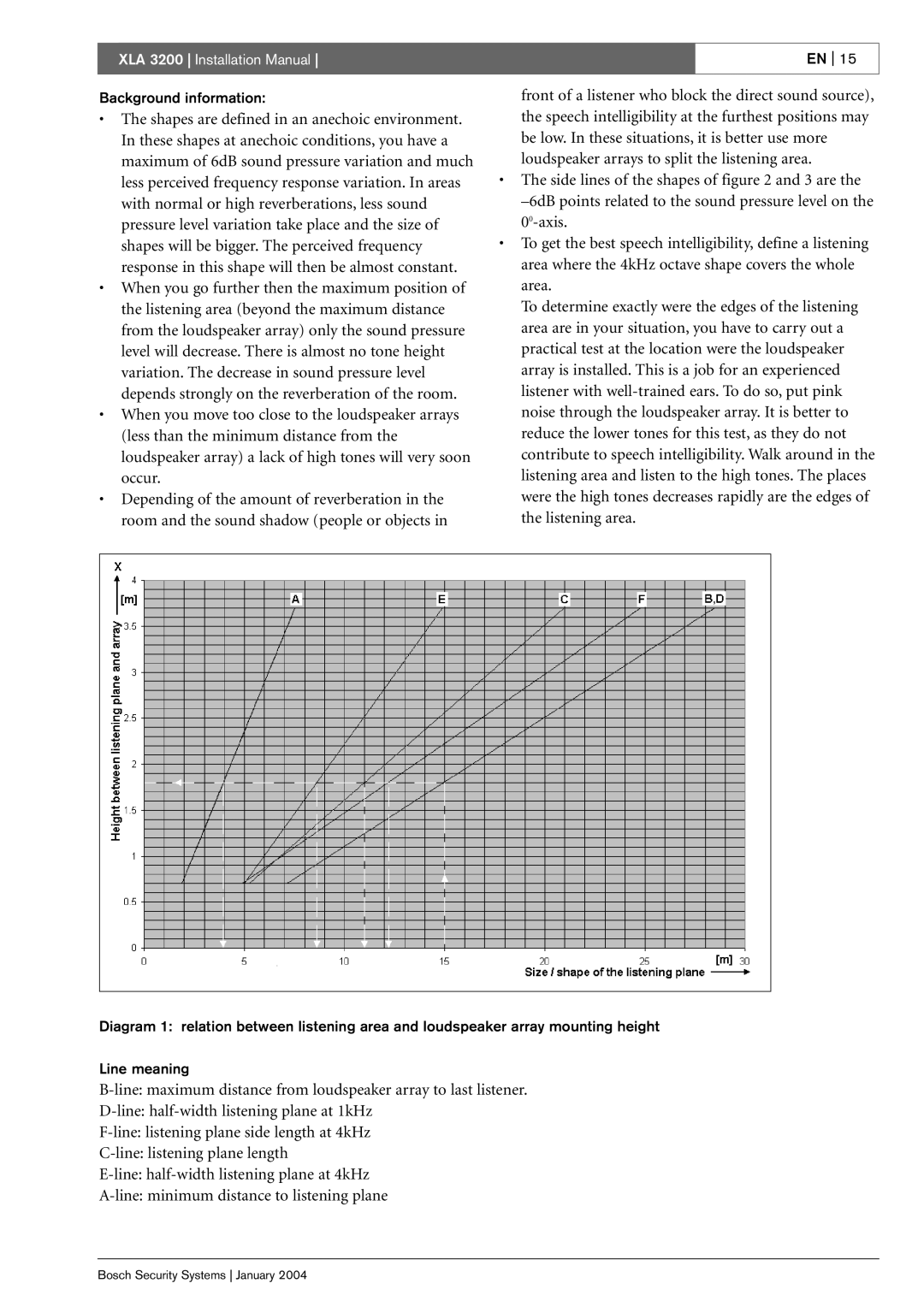
XLA 3200 Installation Manual
Background information:
•The shapes are defined in an anechoic environment. In these shapes at anechoic conditions, you have a maximum of 6dB sound pressure variation and much less perceived frequency response variation. In areas with normal or high reverberations, less sound pressure level variation take place and the size of shapes will be bigger. The perceived frequency response in this shape will then be almost constant.
•When you go further then the maximum position of the listening area (beyond the maximum distance from the loudspeaker array) only the sound pressure level will decrease. There is almost no tone height variation. The decrease in sound pressure level depends strongly on the reverberation of the room.
•When you move too close to the loudspeaker arrays (less than the minimum distance from the loudspeaker array) a lack of high tones will very soon occur.
•Depending of the amount of reverberation in the room and the sound shadow (people or objects in
EN 15
front of a listener who block the direct sound source), the speech intelligibility at the furthest positions may be low. In these situations, it is better use more loudspeaker arrays to split the listening area.
•The side lines of the shapes of figure 2 and 3 are the
•To get the best speech intelligibility, define a listening area where the 4kHz octave shape covers the whole area.
To determine exactly were the edges of the listening area are in your situation, you have to carry out a practical test at the location were the loudspeaker array is installed. This is a job for an experienced listener with
Diagram 1: relation between listening area and loudspeaker array mounting height
Line meaning
Bosch Security Systems January 2004
